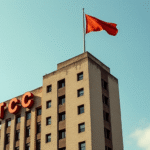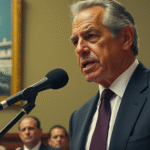Background on Key Figures
Axel Kicillof, the Argentine economist and politician, secured two significant victories in the recent legislative and municipal elections held in Buenos Aires province. These results have left Cristina Kirchner, the former president and influential figure in Argentine politics, and her son Máximo Kirchner, both defeated. Additionally, Javier Milei, the president and leader of the Libertad Avanza (LA) party, suffered a major setback.
Who are the key figures?
- Axel Kicillof: An Argentine economist and politician who has served as Minister of Economy under President Alberto Fernández. He is known for his progressive policies and has been a prominent figure in the Peronist party.
- Cristina Kirchner: The former Argentine president (2007-2015) and senator, who has been a significant influence in Argentine politics. She is known for her left-wing policies and close ties to the Kirchner family.
- Máximo Kirchner: The son of Cristina Kirchner, who has been active in politics and holds a seat in the Argentine Senate. He is considered a rising star within the Peronist movement.
- Javier Milei: An Argentine economist, lawyer, and politician who founded the Libertad Avanza (LA) party. He is known for his libertarian views and has gained popularity by criticizing corruption and advocating for individual freedoms.
Election Results and Implications
The election results indicate that the Argentine left can withstand the political storm generated by Milei, even in Buenos Aires province, which accounts for nearly 40% of the country’s electoral roll. A year ago, Máximo Kirchner urged Axel Kicillof not to challenge his mother’s position within the Justicialist Party, but Kicillof leveraged the significant power of the Buenos Aires provincial governorship to confront a weakened Cristina Kirchner, who is currently under house arrest due to corruption allegations.
Milei’s Mistakes
Milei acknowledged his defeat due to political errors. Joaquín Morales Solá, a political analyst for La Nación, highlighted two key mistakes:
- Overconfidence in public support: Milei believed that society would permanently appreciate him for a temporary decrease in inflation. However, without economic growth, this short-term relief did not address the underlying issues faced by a significant portion of Argentine society.
- Arrogance and mismanagement: Milei’s overconfidence led him to act as if his party held a majority in Congress, despite being the minority. His aggressive behavior and constant insults towards opponents, along with his focus on combating “woke” culture, further alienated potential supporters.
Corruption and Failed Policies
Milei’s popularity plummeted by 8 percentage points in polls due to the controversy surrounding leaked recordings implicating his friend, Diego Spagnuolo (head of the National Agency for Disability), and Karina Milei (Javier’s sister) in bribery allegations related to the procurement of medical supplies.
Moreover, Milei’s promotion of the cryptocurrency LIBRA backfired when investors lost their invested capital shortly after its launch, further eroding public trust.
Key Questions and Answers
- What are the implications of these election results for Argentine politics? The victories of Axel Kicillof signify a potential shift in power dynamics within Argentina’s political landscape, weakening the influence of Cristina Kirchner and Javier Milei.
- Why did Javier Milei suffer a setback in these elections? Milei’s overconfidence, arrogance, and mismanagement of his party’s position in Congress, combined with the damaging effects of corruption allegations and failed policy initiatives, contributed to his electoral defeat.
Context and Future Outlook
These election results mark a significant turning point in Argentine politics, with Axel Kicillof’s victories potentially reshaping the country’s political future. The defeat of Cristina Kirchner and Javier Milei indicates a possible decline in their influence, while Kicillof’s success may strengthen the left-wing movement. However, the road ahead remains challenging, as Argentina grapples with economic issues and political corruption.






